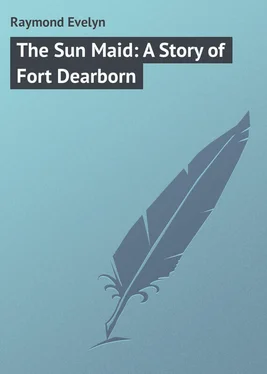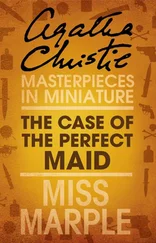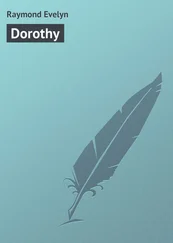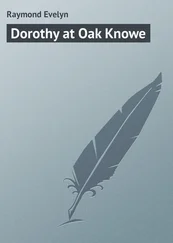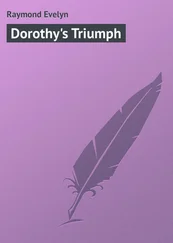Evelyn Raymond - The Sun Maid - A Story of Fort Dearborn
Здесь есть возможность читать онлайн «Evelyn Raymond - The Sun Maid - A Story of Fort Dearborn» — ознакомительный отрывок электронной книги совершенно бесплатно, а после прочтения отрывка купить полную версию. В некоторых случаях можно слушать аудио, скачать через торрент в формате fb2 и присутствует краткое содержание. Жанр: foreign_prose, на английском языке. Описание произведения, (предисловие) а так же отзывы посетителей доступны на портале библиотеки ЛибКат.
- Название:The Sun Maid: A Story of Fort Dearborn
- Автор:
- Жанр:
- Год:неизвестен
- ISBN:нет данных
- Рейтинг книги:5 / 5. Голосов: 1
-
Избранное:Добавить в избранное
- Отзывы:
-
Ваша оценка:
- 100
- 1
- 2
- 3
- 4
- 5
The Sun Maid: A Story of Fort Dearborn: краткое содержание, описание и аннотация
Предлагаем к чтению аннотацию, описание, краткое содержание или предисловие (зависит от того, что написал сам автор книги «The Sun Maid: A Story of Fort Dearborn»). Если вы не нашли необходимую информацию о книге — напишите в комментариях, мы постараемся отыскать её.
The Sun Maid: A Story of Fort Dearborn — читать онлайн ознакомительный отрывок
Ниже представлен текст книги, разбитый по страницам. Система сохранения места последней прочитанной страницы, позволяет с удобством читать онлайн бесплатно книгу «The Sun Maid: A Story of Fort Dearborn», без необходимости каждый раз заново искать на чём Вы остановились. Поставьте закладку, и сможете в любой момент перейти на страницу, на которой закончили чтение.
Интервал:
Закладка:
CHAPTER III.
IN INDIAN ATTIRE
Not many hours after Black Partridge turned his back upon Muck-otey-pokee, all its fighting men, with their squaws and children, also left it, as their chief had foreseen they would. They followed the direction he had taken, though they did not proceed to the garrison itself.
The camp to which they repaired was a little distance from the Fort, and had been pitched beside the river, where was then a fringe of cottonwoods and locusts affording a grateful shade. Here the squaws cooked and gossiped, while their sons played the ancient games of throwing the spear through the ring, casting the hatchet, and shooting birds on the wing.
The braves tested their weapons and boasted of many valorous deeds; or were else entirely silent, brooding upon mischief yet to come. Over all was the thrill of excitement and anticipation, which the great heat of the season seemed to deepen rather than dispel.
At the Fort, Black Partridge pleaded finally and in vain.
“We have been ordered to evacuate, and we will obey. All things are in readiness. The stores are already in the wagons, and other wagons wait for the sick, the women, and the children. Your people have promised us a safe conveyance through their country, and as far as we shall need it. They will be well paid. Part they have received, and the rest of their reward will be promptly delivered at the end of the journey. There is no more to be said”; and with this conclusion the weary commandant sat down in his denuded home to take a bit of food and a few moments’ rest. He nodded hospitably toward an empty chair on the farther side of the deal table, by way of invitation that the Indian should join him, but this the honest chief declined to do.
“No, good father, that can no longer be. I have come to return you this medal. I have worn it long and in peace. It was the gift of your people, a pledge between us of friendship. My friendship remains unbroken, but there also remains a tie which is stronger. I am the chief of my tribe. My young men are brave, and they have been deceived. They will punish the deceivers, and I have no power to prevent this. Nor do I blame them, though I would hold them to their compact if I could.”
“Cannot the Truth-Teller compel his sons to his own habit?”
“Not when his white father sets them a bad example.”
“Black Partridge, your words are bold.”
“Your deed was bolder, father. It was the deed of a fool.”
“Take care!”
As if he had not heard, the chief spoke steadily on:
“My tribesman, Winnemeg – the white man’s friend – brought the order that all goods stored here should be justly distributed among my people, to every man his portion. Was it thus done?”
“Come, Black Partridge, you are not wanting in good sense nor in honesty. You must admit that such a course would have been hazardous in the extreme. The idea of putting liquor and ammunition into the hands of the red men was one of utter madness. It was worse than foolhardy. The broken firearms are safe in the well, and the more dangerous whiskey has mingled itself harmlessly with the waters of the river and the lake.”
“There is something more foolish than folly,” said the Indian, gravely, “and that is a lie! The powder drowned in the well will kill more pale-faces than it could have done in the hands of your red children. The river-diluted whiskey will inflame more hot heads than if it had been dispensed honorably and in its full strength. But now the end. Though I will do what I can do, even the Truth-Teller cannot fight treachery. Prepare for the worst. And so – farewell!”
Then the tall chief bowed his head in sadness and went away; but the terrible truth of what he then uttered all the world now knows.
Meanwhile, in the almost empty village among the cottonwoods, the Sun Maid played and laughed and chattered as she had always done in her old home at the Fort. And all day, those wiser women like Wahneenah, who had refrained from following their tribe to the distant camp, watched and attended the child in admiring awe.
By nightfall the Sun Maid had been loaded with gifts. Lahnowenah, wife of the avaricious Shut-Hand but herself surnamed the Giver, came earliest of all, with a necklace of bears’ claws and curious shells which had come from the Pacific slope, none knew how many years before.
The Sun Maid received the gift with delight and her usual exclamation of “Nice!” but when the donor attempted to clasp the trinket about the fair little throat she was met by a decided: “No, no, no!”
“Girl-Child! All gifts are worthy, but this woman has given her best,” corrected Wahneenah, with some sternness. This baby might be a spirit, in truth, but it was the spirit of her own child and she must still hold it under authority.
At sound of the altered tones, Kitty looked up swiftly and her lip quivered. Then she replied with equal decision:
“Other Mother must not speak to me like that. Kitty is not bad. It is a pretty, pretty thing, but it is dirty. It must have its faces washed. Then I will wear it and love it all my life.”
An Indian girl would have been punished for such frankness, but Lahnowenah showed no resentment. Beneath her outward manner lay a deeper meaning. To her the necklace was a talisman. From generations long dead it had come down to her, and always as a life-saver. Whoever wore it could never be harmed “by hatchet or arrow, nor by fire or flood.” Yet that very morning had her own brother, the Man-Who-Kills, assured her that the child’s life was a doomed one, and she had more faith in his threats than had his neighbors in their village. She knew that the one thing he respected was this heirloom, and that he would not dare injure anybody who wore it. The Sun Maid was, undoubtedly, under the guardianship of higher powers than a poor squaw’s, yet it could harm nobody to take all precautions.
So, with a grim smile, the donor carried her gift to the near-by brook and held it for a few moments beneath the sluggish water; then she returned to the wigwam and again proffered it to the foundling.
“Yes. That is nice now. Kitty will wear it all the time. Won’t the childrens be pleased when they see it! Maybe they may wear it, too, if the dear blanket lady says they may. Can they, Other Mother?”
The squaws exchanged significant glances. They knew it was not probable that the Fort orphan and her old playmates would ever meet again; but Wahneenah answered evasively:
“They can wear it when they come to the Sun Maid’s home.”
Again Lahnowenah would have put the necklace in its place, and a second time she was prevented; for at that moment the One-Who-Knows came slowly down the path between the trees, and held up her crutch warningly, as she called, in her feeble voice:
“Wait! This is a ceremony. Let all the women come.”
Lahnowenah ran to summon them, and they gathered about the tepee in expectant silence. When old Katasha exerted herself it behooved all the daughters of her tribe to be in attendance.
Wahneenah hastened to spread her best mat for the visitor’s use, and helped to seat her upon it.
“Ugh! Old feet grow clumsy and old arms weak. Take this bundle, sister of my chief, and do with its contents as seems right to thee.”
The other squaws squatted around, eagerly curious, while Wahneenah untied the threads of sinew which fastened the blanket-wrapped parcel. This outer covering itself was different from anything she had ever handled, being exquisitely soft in texture and gaudily bright in hue. It was also of a small size, such as might fit a child’s shoulders.
Within the blanket was a little tunic of creamy buckskin, gayly bedecked with a fringe of beads around the neck and arms’ eyes, while the short skirt ended in a border of fur, also bead-trimmed in an odd pattern. With it were tiny leggings that matched the tunic; and a dainty pair of moccasins completed the costume.
Читать дальшеИнтервал:
Закладка:
Похожие книги на «The Sun Maid: A Story of Fort Dearborn»
Представляем Вашему вниманию похожие книги на «The Sun Maid: A Story of Fort Dearborn» списком для выбора. Мы отобрали схожую по названию и смыслу литературу в надежде предоставить читателям больше вариантов отыскать новые, интересные, ещё непрочитанные произведения.
Обсуждение, отзывы о книге «The Sun Maid: A Story of Fort Dearborn» и просто собственные мнения читателей. Оставьте ваши комментарии, напишите, что Вы думаете о произведении, его смысле или главных героях. Укажите что конкретно понравилось, а что нет, и почему Вы так считаете.
